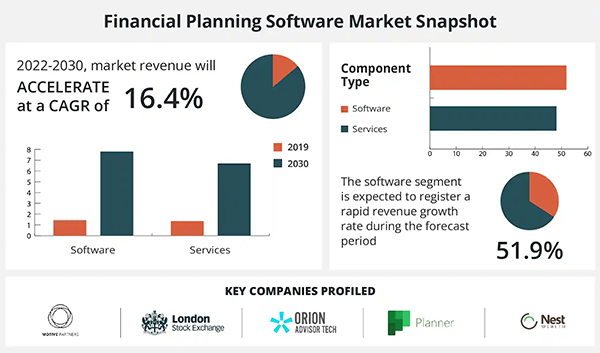Whether you are new to navigating your finances and are already familiar with it or wish to improve further, little adjustments can create a big difference.
This article contains seven effective and helpful tips that are quite straightforward and will be beneficial in assisting you with financial management, savings, and investments. Also, learn about Financial Planning for a Conveyor Roller Business by reading this article.
As you take an insight into this blog, you will learn how to budget, how to make a wise financial decision, how to spend wisely, better utilization the trending tools, about the investment factors, and so on, all aiming to assist you in achieving your financial goal for the future emergencies and saving, or might you get rich.

1. Create a Detailed Budget and Stick to It
Creating a detailed budget is the first and foremost step toward your financial success that will help you understand your spending habits and make well-turned-out financial decisions.
It’s common not to have a clear understanding of your salary and expenses, however, that’s also the major reason for the difficulty in monitoring the outflow of cash.
Thus, start by listing all the various sources of income you have right from your salary, side jobs, or even passive income.
Secondly, create a list of all your monthly payments, and make sure you include both the fixed expenses like rent and electricity as well as other variable expenses for example entertainment and eating out.
Taking this practical approach to budget will surely help you understand your financial situation, and determine what maximum level of spending for each group of expenses could be appropriate.
At last, bear in mind that you must save some share of the earnings; it will help in the effective management of the budget in regularity.
2. Build an Emergency Fund
You never know what will happen the next second and you can’t change it either; all you can do is start setting aside funds in an emergency savings account.
This fund acts as a safety net against immediate expenses such as sickness, car repairs, or getting suddenly laid off.
Ideally, it is advised that you have savings that can enable you to survive for about three to six months.
If you need to begin with little, then by all means do, but ensure that you make it primary to work toward adding to your emergency fund.
However, if you are concerned that in temptation, you might spend all your future savings, consider creating a separate bank account exclusively for your emergency fund.
3. Minimize Debt and Use Credit Wisely
Debt is the major barrier between you and your successful financial planning, be it on credit card debt, student loans, or a mortgage, debt makes it difficult to save and invest in the future.
In order to deal with this problem, there is a need to have a proper plan on how to repay all.
For this, initiate by paying off higher-interest debt, and then focus on getting rid of other remaining debts as quickly as possible.
Be sure you don’t take on new debts when you are struggling to pay off the existing ones. Poor debt management can negatively impact your financial health, including your credit score, making it even harder to recover.
4. Leverage Technology to Optimize Your Finances
You are living in a modern era, surrounded by plenty of technologies and innovations available for ease of your life, and so for ease of your financial planning.
Be it planning a budget, investing, financial advice, or expense tracking, tech finance tools like excel AI tools boost your financial knowledge and are powered by artificial intelligence.

As an illustration, excel AI tools can greatly improve your ability to trace, scrutinize, and even streamline your financial information.
Such tools enable one to perform intricate computations, study patterns, and come up with conclusions that are beneficial to one’s finances.
5. Invest in Your Financial Education
Investing in your financial education is the essential foundation for a smart relationship with money-making and saving.
It not only helps you overcome potential financial risks but also helps start a lifelong journey of learning about the financial aspects of your life.
As education is the key to a successful financial future, start investing your time in reading books, visiting workshops, and taking online courses that focus on subjects such as budgeting, personal finance, investing, stock market investing, real estate, and retirement planning, all are valuable areas to explore.
The more you learn, the more you will be responsible for your financial planning and goals.
Do You Know?
Only 57% of adults in the United States are financially literate.
6. Diversify Your Investments
Diversification is another prime factor that can assist you in building your finance plan effectively.
The term is a risk management technique that minimizes risks by allocating investments across different asset classes such as stocks, bonds, real estate, and commodities.
Ahead when crafting your investment strategy, you must consider your risk tolerance and how long you are planning to invest.
For instance, if you are older or closer to your retirement period, you can choose to invest in conservative options such as Bonds, however, if you are still young and have the capability of taking risks, then must go and invest in growth real estate and stocks.
Don’t just diversify across investment types, also try to diversify across market types. For example, if you have shares in the medical sector, also consider the financial sector monitoring shares such as the westpac share price.
7. Automate Your Savings and Investments
Saving for the future and also living for today isn’t an easy task to balance,
However, once you do, it pays off over time and builds a foundation to protect against unexpected financial challenges.
Automating your savings is one effective way you can approach being disciplined and consistently working towards your financial goals.
In this, your bank sends regular deposits from your checking account to your savings, hence ensuring that you stick to your goal and avoid overspending.






